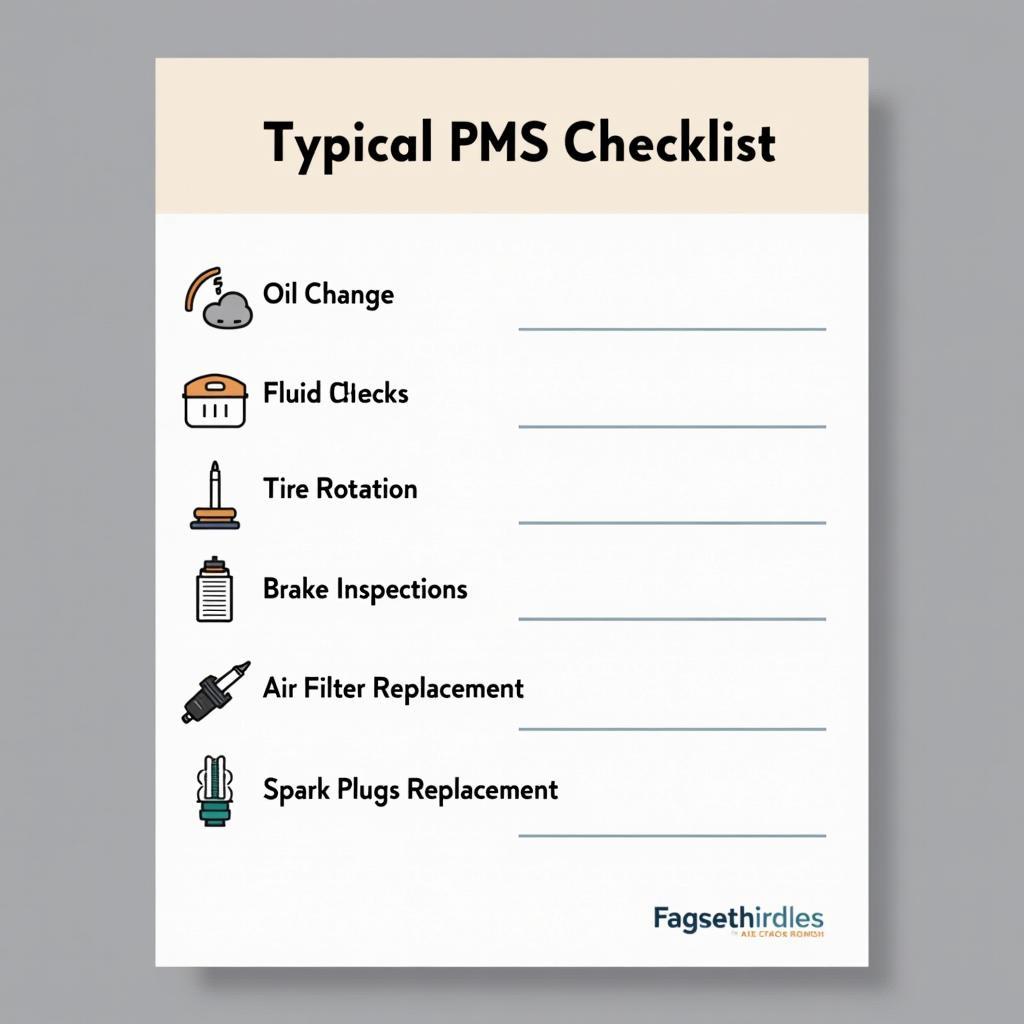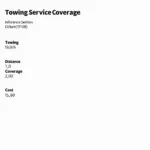PMS, or Preventative Maintenance Service, is crucial for keeping your vehicle running smoothly and avoiding costly repairs down the line. Understanding what PMS car services entail can save you money and extend the life of your car. This article delves into the specifics of PMS, covering everything from basic checks to more complex procedures.
Decoding PMS Car Services: A Comprehensive Guide
Preventative maintenance service isn’t just about changing your oil; it’s a proactive approach to car care that involves regular inspections, adjustments, and component replacements to prevent potential problems. By addressing minor issues before they escalate, PMS car services ensure optimal performance, enhance safety, and maximize your car’s resale value.
Thinking about skipping your next service? Think again. Neglecting regular PMS can lead to a cascade of issues, from reduced fuel efficiency and increased emissions to major engine or transmission failures.
After this opening section, you can learn more by visiting our guide on how often do i need to service my car.
Key Components of a Typical PMS Schedule
A comprehensive PMS schedule typically includes several key components, depending on the vehicle’s age, mileage, and manufacturer recommendations. These services often involve:
-
Oil and Filter Changes: Regularly changing your oil and filter is the cornerstone of PMS. Fresh oil lubricates the engine components, reducing friction and wear.
-
Fluid Checks and Top-offs: This includes checking and topping off vital fluids like coolant, brake fluid, power steering fluid, and transmission fluid.
-
Tire Rotation and Balancing: Rotating your tires ensures even wear and tear, extending their lifespan. Balancing prevents vibrations and improves handling.
-
Brake Inspection: Checking brake pads, rotors, and calipers helps identify potential issues early on, ensuring your safety on the road.
-
Air Filter Replacement: A clean air filter allows for proper airflow to the engine, improving fuel efficiency and performance.
-
Spark Plug Replacement: Worn-out spark plugs can reduce fuel economy and engine power.
Why is PMS Important?
Consistent PMS is not just a recommendation; it’s an investment. It’s an investment in the longevity of your vehicle, your safety, and your wallet.
-
Enhanced Safety: Regular inspections catch potential safety hazards early, preventing accidents and ensuring peace of mind.
-
Improved Fuel Economy: A well-maintained vehicle operates more efficiently, leading to better gas mileage and cost savings.
-
Increased Resale Value: A comprehensive service history demonstrates that the car has been properly cared for, increasing its attractiveness to potential buyers.
-
Reduced Risk of Major Repairs: By addressing minor issues promptly, you can prevent them from escalating into costly repairs.
“Regular PMS is like brushing your teeth for your car,” says John Davis, a seasoned automotive technician. “Small, consistent efforts can prevent major problems down the road.”
PMS Frequency: How Often Should You Service Your Car?
The frequency of your PMS depends on various factors, including the make and model of your vehicle, your driving habits, and the manufacturer’s recommendations. Consult your owner’s manual for specific guidelines. However, a general rule of thumb is to have your car serviced every six months or every 5,000 to 7,500 miles, whichever comes first.
Beyond the Basics: Advanced PMS for Modern Vehicles
Modern vehicles often require more specialized PMS procedures, including:
-
Computer Diagnostics: Using specialized software to identify potential issues with the engine, transmission, and other electronic systems.
-
Battery Testing and Replacement: Ensuring the battery is in good working condition and replacing it when necessary.
-
Cooling System Flush: Cleaning the cooling system to prevent overheating and corrosion.
-
Transmission Service: Changing the transmission fluid and filter to ensure smooth shifting and prevent premature wear.
“Today’s cars are more complex than ever,” explains Sarah Miller, an automotive engineer. “Advanced PMS procedures are essential for maintaining their performance and reliability.”
Conclusion: Investing in Peace of Mind
Understanding what PMS car services entail is the first step towards responsible car ownership. By adhering to a regular PMS schedule, you can ensure your vehicle’s optimal performance, enhance its lifespan, and avoid costly repairs. Regular maintenance isn’t an expense; it’s an investment in your peace of mind. Don’t wait for problems to arise; take proactive steps to keep your car running smoothly for years to come.
FAQ
-
What does PMS stand for in car services? PMS stands for Preventative Maintenance Service.
-
Why is PMS important for my car? PMS ensures optimal performance, safety, and longevity of your vehicle.
-
How often should I get a PMS for my car? Consult your owner’s manual, but typically every six months or 5,000-7,500 miles.
-
What are some common PMS services? Oil changes, fluid checks, tire rotations, brake inspections.
-
What are the benefits of regular PMS? Enhanced safety, improved fuel economy, increased resale value, reduced risk of major repairs.
-
Where can I find more information about car servicing frequency? You can visit our page dedicated to answering this question: how often do i need to service my car.
-
What if I have further questions about PMS? Contact our 24/7 support via WhatsApp: +1(641)206-8880 or Email: [email protected].
Need help understanding specific PMS procedures for your car model? Check out our other articles on car maintenance and repair. For immediate assistance, contact us via WhatsApp: +1(641)206-8880, or Email: [email protected]. We have a 24/7 customer support team ready to help.


